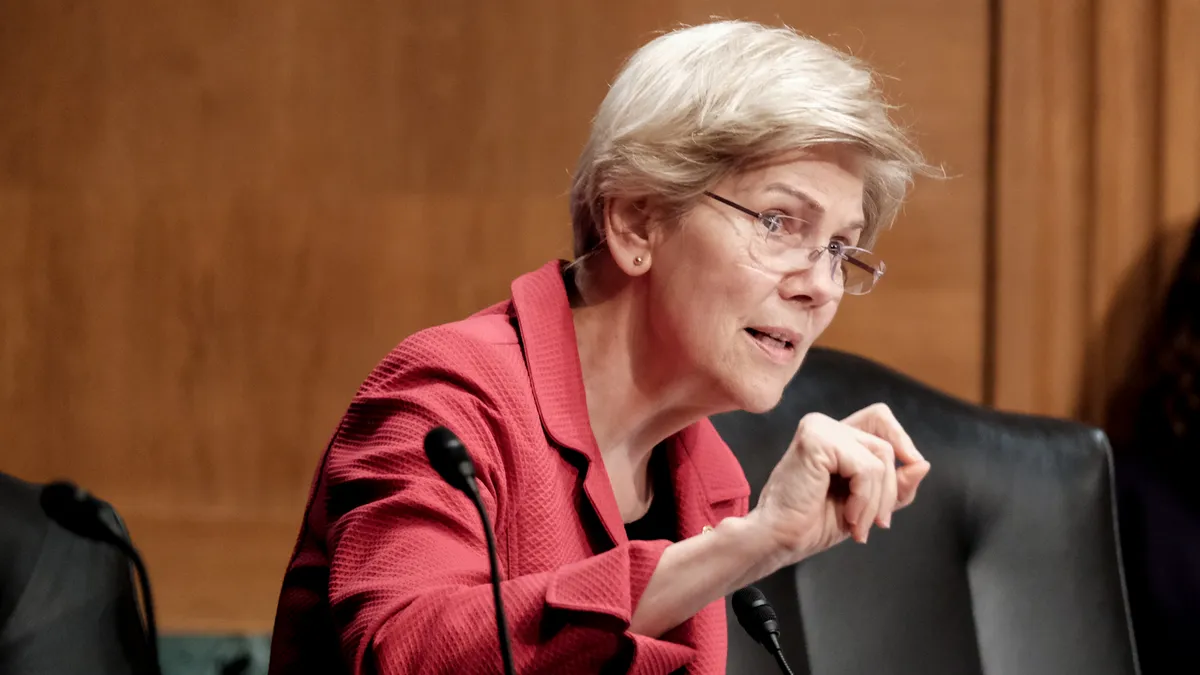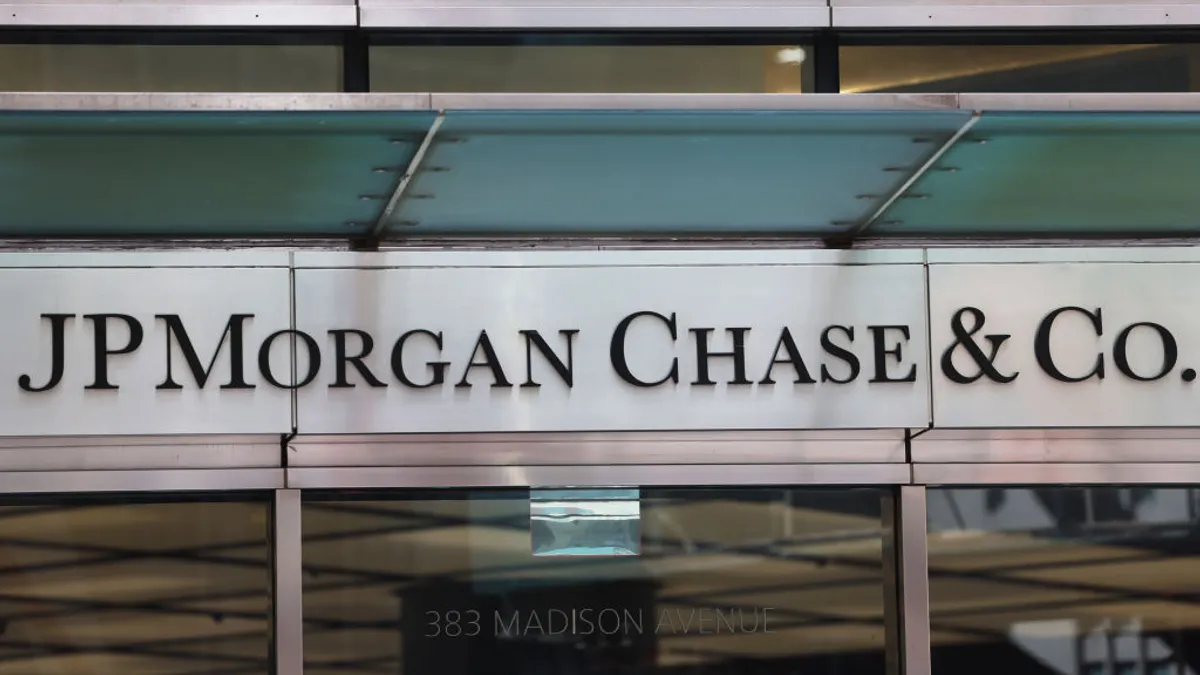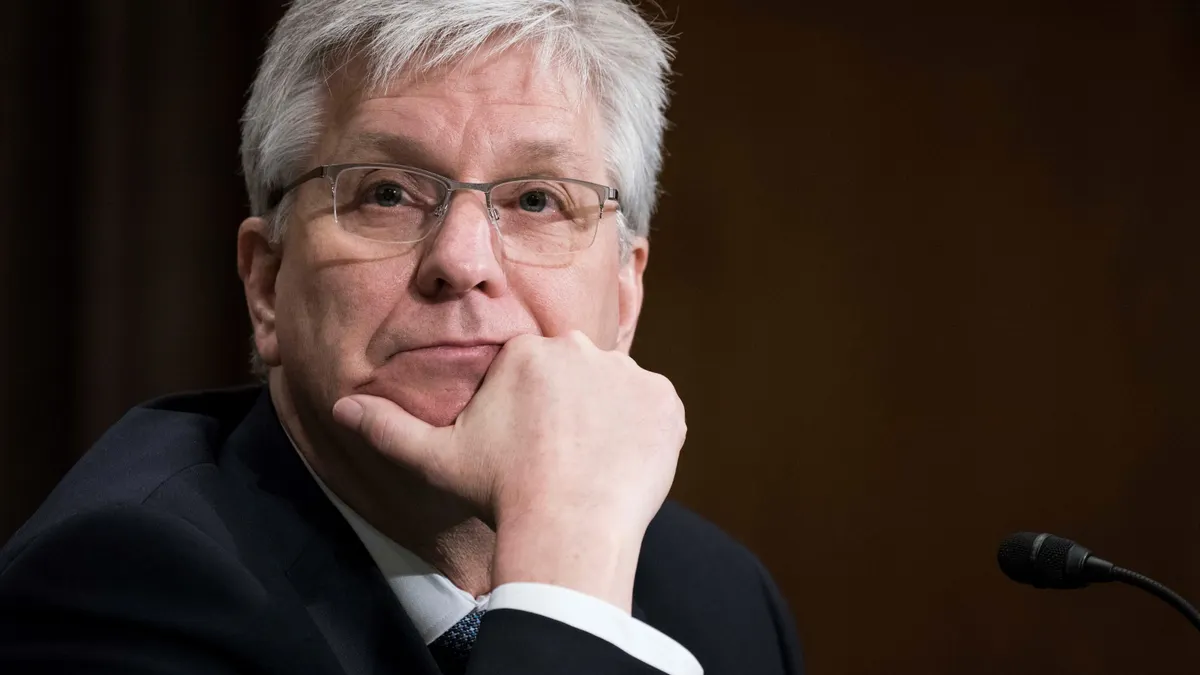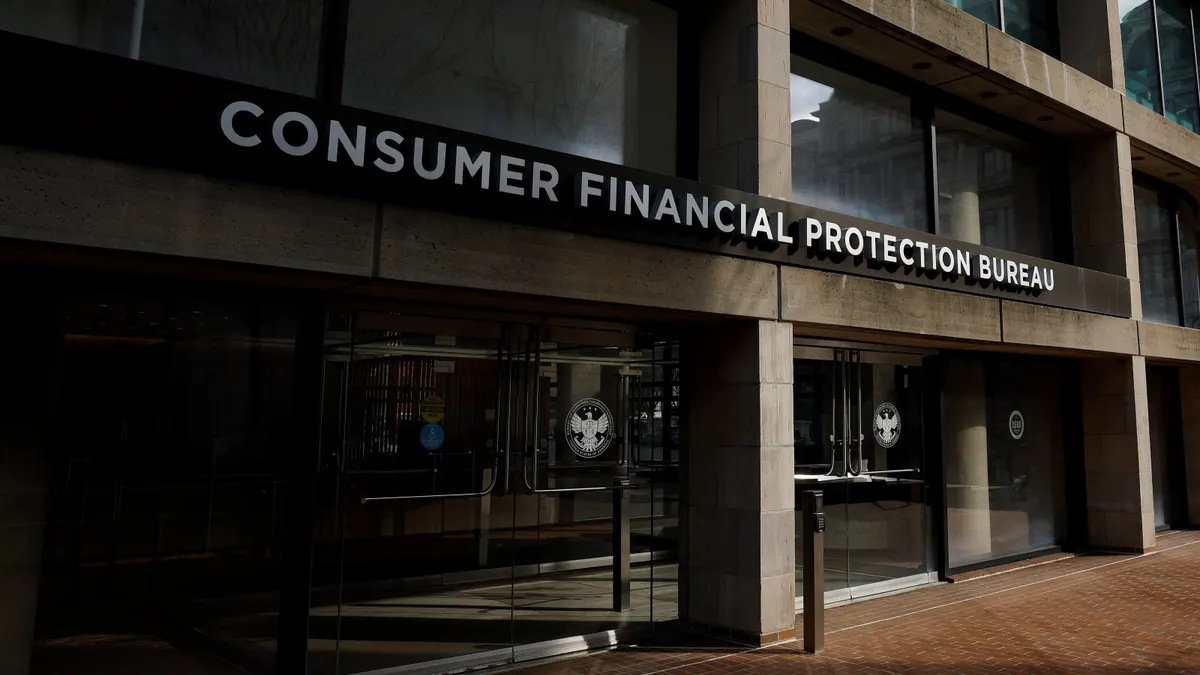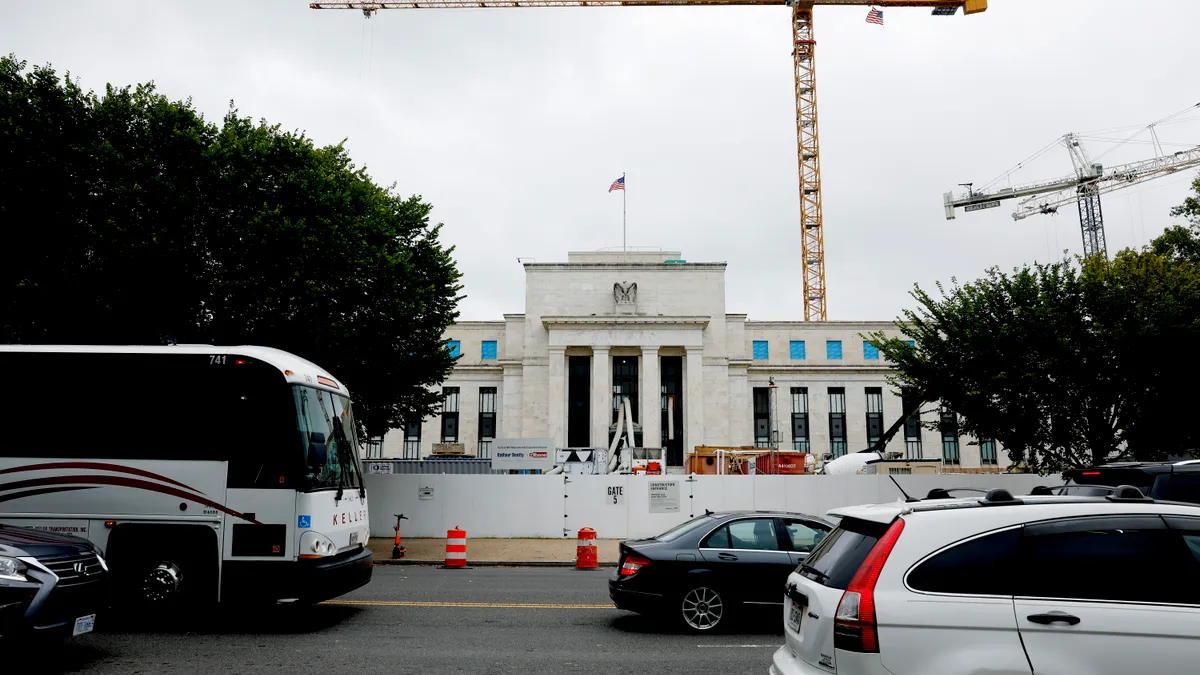Sen. Elizabeth Warren, D-MA, urged Federal Reserve officials, in a letter Tuesday, to reject a plea by Wells Fargo to lift an asset cap that has halted the bank’s growth since 2018.
The bank submitted a third-party review of changes to its risk management and controls for the central bank to analyze, Bloomberg reported in September.
But that submission came on the heels of a broad enforcement action from the Office of the Comptroller of the Currency, which cited deficiencies in Wells’ financial crimes risk management practices and anti-money laundering internal controls, Warren noted.
“Removing Wells Fargo’s asset cap based on the recommendation of a third-party analysis that Wells Fargo purchased for itself and was provided days after a fellow regulator slapped the bank with a 40-part enforcement action would harm consumers, threaten our financial stability, and reward a bad bank for continuing a long history of abusive and reckless practices,” Warren wrote to Fed Chair Jerome Powell and Vice Chair for Supervision Michael Barr.
Any action to lift the cap, which has kept Wells Fargo from surpassing $1.95 trillion in assets, still faces several hurdles. The full Fed board must vote to remove the cap – a point Warren also noted in her letter. But the Fed also has the right to ask Wells for more information or more progress in response to the submission.
Wells Fargo executives estimated at this point last year that the asset cap would last at least until 2025, according to Bloomberg. But all the same, the bank’s top brass has been loath to publicly talk about a timeline. As it stands, Wells’ third-party submission was years in the making: The bank had to submit an action plan to the Fed, which asked for revisions. Then Wells had to implement that plan and hire an observer to document the bank’s progress.
Warren on Tuesday reminded Powell that he vowed in 2018 that the Fed would not lift Wells’ asset cap without a vote by the full board. Now, though, is not the right time, Warren added.
“Given recent instances of [Wells] Fargo’s continued misbehavior, convening a vote to consider removing the asset cap would be inappropriate and set a dangerous precedent indicating that the Fed is responsive to a bank’s unsubstantiated request that it no longer be subject to necessary growth restrictions,” the senator wrote.
Warren cited five AML violations against Wells in the past 10 years and added a bulleted list of missteps since 2016’s fake-accounts scandal, including allegations of mortgage overcharges, wrongful foreclosure and vehicle repossession, sanctions violations, document falsification and excessive overdraft fees.
But the senator saved her sharpest rebukes for two recent Wells entanglements: the September OCC order and a July ruling by a judge to allow a lawsuit over the bank’s diverse-interview policy to proceed. (Wells in 2022 revamped a policy mandating that at least half of candidates interviewed for certain positions be people of color or women. The bank’s earlier policy took flak when The New York Times reported that some of the diverse candidates were interviewed for positions that had already been filled.)
“This is not the first time Wells Fargo has set overly ambitious targets and cheated its way to meeting its goals,” Warren said of the sham-interview case, in a nod to the fake-accounts scandal that prompted the asset cap in question.
“Wells Fargo’s decades-long pattern of lying in the name of corporate goal setting is yet another reason to maintain the asset cap,” Warren wrote.
The OCC’s September order, meanwhile, “shows that not only has Wells Fargo failed to address its past mistakes — but that the bank’s AML program appears to be getting even worse,” Warren wrote.
Wells is hardly the first bank for which Warren has advocated an asset cap. The senator – and likely next ranking member of the Senate Banking Committee – urged the OCC’s acting chief, Michael Hsu, last month to impose a growth restriction on Citi over what she argues is insufficient progress on resolving ongoing data quality, risk management and internal control issues.
Warren cited a January 2023 speech by Hsu, suggesting a “four-step escalation framework” to manage big banks where such failures “occur too frequently.”
The steps, Warren said, are: private warnings, public enforcement actions, growth restrictions and, finally, breaking up the repeat-offender bank.
She argued, though, that the OCC was too soft on Citi in July, when the regulator imposed $135.6 million in new penalties over an issue that cost the bank $400 million in penalties in 2020.
The OCC was not adhering to the four-step framework there, but merely repeating Step 2, Warren argued in October.
At other times, Warren has asserted that asset caps themselves are too soft. When regulators and the Justice Department imposed a combined $3.09 billion in penalties on TD last month over AML deficiencies, and the OCC capped the bank’s U.S. retail assets at $434 billion, Warren blasted the DOJ’s “carefully crafted” plea agreement.
In particular, she bemoaned the decision to let TD plead guilty to conspiracy to launder money, when a guilty plea to money laundering could have allowed the OCC to pursue revoking the bank’s charter.
Spokespeople for Wells Fargo and the Fed declined to comment on Warren’s letter.



